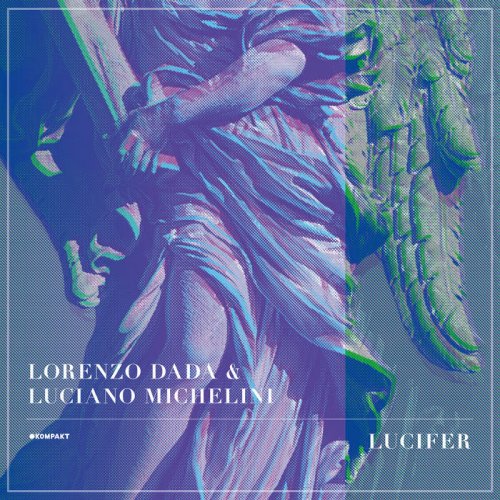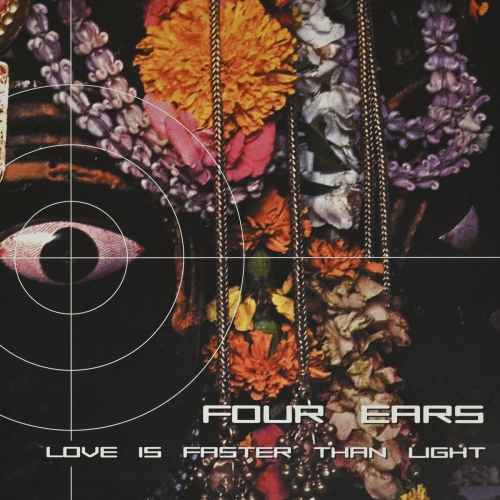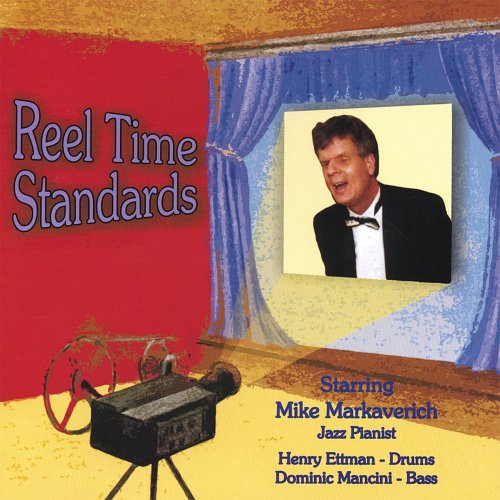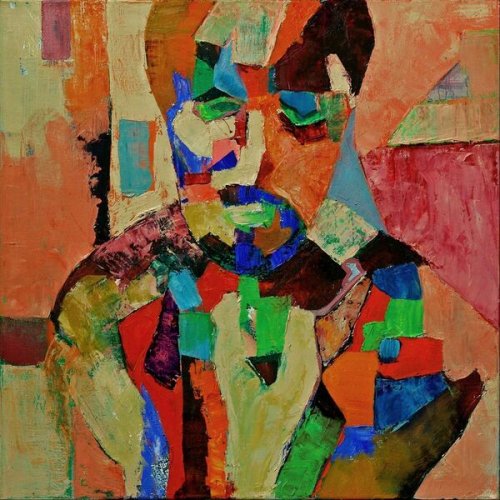Lorenzo Dada & Luciano Michelini - Lucifer (2024)

Artist: Lorenzo Dada, Luciano Michelini
Title: Lucifer
Year Of Release: 2024
Label: Kompakt Germany – KOMPAKT CD 181 D
Genre: Electronic
Quality: 16bit-44,1kHz FLAC
Total Time: 50:06
Total Size: 279 mb
WebSite: Album Preview
TracklistTitle: Lucifer
Year Of Release: 2024
Label: Kompakt Germany – KOMPAKT CD 181 D
Genre: Electronic
Quality: 16bit-44,1kHz FLAC
Total Time: 50:06
Total Size: 279 mb
WebSite: Album Preview
1. Lorenzo Dada & Luciano Michelini – Samba (04:57)
2. Lorenzo Dada & Luciano Michelini – Panorama (04:39)
3. Lorenzo Dada & Luciano Michelini – Golfo Mistico (04:34)
4. Lorenzo Dada, Luciano Michelini & Tears Of Blue – Open Sky (04:56)
5. Lorenzo Dada & Luciano Michelini – Contemporary Lullaby (03:05)
6. Lorenzo Dada & Luciano Michelini – Requiem (02:54)
7. Lorenzo Dada & Luciano Michelini – Whispers (04:19)
8. Lorenzo Dada & Luciano Michelini – Another Dark (03:35)
9. Lorenzo Dada & Luciano Michelini – Modular Clouds In Rome (03:21)
10. Lorenzo Dada & Luciano Michelini – Overture (03:54)
11. Lorenzo Dada & Luciano Michelini – Piano Bells (03:30)
12. Lorenzo Dada & Luciano Michelini – Space Call From Mars (03:00)
13. Lorenzo Dada, Luciano Michelini & Tears Of Blue – Tuning The Orchestra (03:22)
With Lucifer, Kompakt presents an album of rare beauty from two masters of modern music. A family affair, it’s a collaboration between the Italian father-and-son duo of Luciano Michelini and Lorenzo Dada, whose combined histories bring to Lucifer a depth of experience alongside clarity of vision and a finely tuned, neatly developed combined compositional voice. A lovely, beguiling suite of music that combines the electronic and the acoustic, the urban and the pastoral, its gorgeous night-eye vision and tender melancholy sits neatly within the Kompakt universe, while offering the curious listener some rich new perspectives.
There is already plenty to know both artists by. Lorenzo Dada creates across multiple fields – a techno producer and DJ who has already worked with the likes of Jay Haze, Fete, Leo Benassi, and Der, he’s released a small clutch of stylish, smartly designed EPs, and a solo album, Second Life (2018). His complementary background in classical music and composition informs his ensemble project, Tears Of Blue (who appear on Lucifer), where Dada paints with neo-classical tones for a quartet of violin, viola, cello and grand piano, supplemented by electronics for live performance.
Luciano Michelini’s history is yet richer. He may be best known, to many, for his piece “Frolic”, the theme to Larry David’s Curb Your Enthusiasm series; it was also sampled by Snoop Dogg for 2022’s “Crip Ya Enthusiasm”. But there’s much more to Michelini’s story. A successful soundtrack composer, Michelini both studied and taught at the Conservatoro di Santa Cecilia, and worked for RCA from the sixties to the eighties; his soundtracks from this period are gorgeous examples of the form, particularly his work for Il Decamerone Nero (1972), L’Isola Degli Uomini Pesce (1979), and the devastatingly gorgeous Dimensione Donna (1977).
In the eighties, Michelini and his wife Anna Gutling founded the Electronic Music Division studio and academy in Rome, which is where the majority of Lucifer was recorded. Dada reflects on the experience: “We never worked together before, so it was all new for both of us,” with Michelini adding, “I truly love this experience with my son. He’s a talented pianist and composer. I am not very familiar with electronic music nowadays, but we did it fluently.” There’s certainly a familial energy at play through Lucifer, and you can hear how Dada and Michelini, through exploration and experiment, find a shared language, balancing Dada’s tendency toward minimalism, and Michelini’s composerly voice.
Lucifer flows as a suite that interweaves electronic music with acoustic instruments: the lonely sigh of saxophone; Michelini’s lush, verdant piano; the weeping strings of Tears Of Blue (recorded at the studio of Michelini’s friend, the late Maestro, Ennio Morricone). These multiple voices are located within the electronic sighs and swarms from Dada’s kit; there are moments of propulsion, and passages of lambent drift, where the album revels in its tonal sweetness. If it flows so effortlessly, that’s because Lucifer was designed that way, as a suite or a sonata of sorts.
And the title? Dada reflects, “Lucifer was an angel who decided not to be one anymore. The miracle of life is that we can decide what we want to be, even if we are born as angels or vice versa.” This feels somehow apposite: there’s certainly something of the transformative, and the transportive, in Lucifer, a unique family collaboration of rare poetry and sensitivity, where two generations meet in the modern crucible that is the electronic music studio.
Mit Lucifer präsentiert Kompakt ein Album von seltener Schönheit von zwei Meistern der modernen Musik. Das italienische Vater-Sohn-Duo Luciano Michelini und Lorenzo Dada ist eine Familienangelegenheit und vereint in Lucifer seine langjährige Erfahrung mit einer klaren Vision und einer fein abgestimmten, sauber entwickelten gemeinsamen kompositorischen Stimme. Eine reizende, betörende Musiksuite, die elektronische und akustische, urbane und pastorale Elemente miteinander verbindet. Die wunderschöne Nachtsicht und die zarte Melancholie fügen sich nahtlos in das Kompakt-Universum ein und bieten dem neugierigen Hörer einige neue Perspektiven.
Es gibt bereits eine Menge Gründe, um beide Künstler zu kennen. Lorenzo Dada ist ein Techno-Produzent und DJ, der bereits mit Künstlern wie Jay Haze, Fete, Leo Benassi und Der zusammengearbeitet hat. Er hat eine Reihe stilvoller, intelligent gestalteter EPs und ein Soloalbum, Second Life (2018), veröffentlicht. Sein komplementärer Hintergrund in klassischer Musik und Komposition prägt sein Ensemble-Projekt Tears Of Blue (das auf Lucifer zu hören ist), wo Dada mit neoklassischen Klängen für ein Quartett aus Violine, Viola, Cello und Flügel malt, ergänzt durch Elektronik für die Live-Performance.
Die Geschichte von Luciano Michelini ist noch reicher. Vielen ist er vielleicht am bekanntesten für sein Stück “Frolic”, das Thema von Larry Davids Serie “Curb Your Enthusiasm”; es wurde auch von Snoop Dogg für “Crip Ya Enthusiasm” von 2022 gesampelt. Aber Michelinis Geschichte hat noch viel mehr zu bieten. Als erfolgreicher Soundtrack-Komponist studierte und unterrichtete Michelini am Conservatoro di Santa Cecilia und arbeitete von den sechziger bis zu den achtziger Jahren für RCA. Seine Soundtracks aus dieser Zeit sind großartige Beispiele für die Form, insbesondere seine Arbeit für Il Decamerone Nero (1972), L’Isola Degli Uomini Pesce (1979) und das umwerfend schöne Dimensione Donna (1977).
In den achtziger Jahren gründeten Michelini und seine Frau Anna Gutling das Studio und die Akademie Electronic Music Division in Rom, wo der Großteil von Lucifer aufgenommen wurde. Dada reflektiert über diese Erfahrung: “Wir hatten noch nie zuvor zusammengearbeitet, es war also für uns beide etwas Neues”, und Michelini fügt hinzu: “Ich liebe diese Erfahrung mit meinem Sohn sehr. Er ist ein talentierter Pianist und Komponist. Ich bin mit elektronischer Musik heutzutage nicht sehr vertraut, aber wir haben sie fließend gespielt.” In Lucifer ist zweifellos eine familiäre Energie im Spiel, und man kann hören, wie Dada und Michelini durch Erkundung und Experimentieren eine gemeinsame Sprache finden, die Dada’s Tendenz zum Minimalismus und Michelini’s kompositorische Stimme in Einklang bringt.
Lucifer ist eine Suite, die elektronische Musik mit akustischen Instrumenten verwebt: das einsame Seufzen des Saxophons, Michelinis üppiges, grünes Klavier, die weinenden Streicher von Tears Of Blue (aufgenommen im Studio von Michelinis Freund, dem verstorbenen Maestro Ennio Morricone). Diese vielfältigen Stimmen sind in die elektronischen Seufzer und Schwärme von Dadas Kit eingebettet; es gibt Momente des Vorwärtsdrängens und Passagen des zarten Abdriftens, in denen das Album in seiner klanglichen Süße schwelgt. Wenn es so mühelos fließt, liegt das daran, dass Lucifer so konzipiert wurde, als eine Art Suite oder Sonate.
Und der Titel? Dada überlegt: “Luzifer war ein Engel, der beschloss, kein Engel mehr zu sein. Das Wunder des Lebens ist, dass wir uns entscheiden können, was wir sein wollen, auch wenn wir als Engel geboren werden oder umgekehrt”. Das passt irgendwie: In Lucifer, einer einzigartigen familiären Zusammenarbeit von seltener Poesie und Sensibilität, bei der zwei Generationen im modernen Schmelztiegel des elektronischen Musikstudios aufeinandertreffen, steckt zweifellos etwas vom Transformativen und Transportablen.

![Sachi Hayasaka & Stir Up - Free Fight (Remastered) (2026) [Hi-Res] Sachi Hayasaka & Stir Up - Free Fight (Remastered) (2026) [Hi-Res]](https://www.dibpic.com/uploads/posts/2026-02/1770839196_nctvwqu7dwhcc_600.jpg)



![Momoko Gill - Momoko (2026) [Hi-Res] Momoko Gill - Momoko (2026) [Hi-Res]](https://www.dibpic.com/uploads/posts/2026-02/1770838961_a3258795048_10.jpg)


![Howard McGhee - Dusty Blue (Remastered 2013) (2026) [Hi-Res] Howard McGhee - Dusty Blue (Remastered 2013) (2026) [Hi-Res]](https://www.dibpic.com/uploads/posts/2026-02/1770800733_dm4oiwhycda9e_600.jpg)